Conflict management
Resolving Internal Conflicts
Ralph Kilmann
Part 4/4: Can the TKI model help with internal conflict? Ralph H. Kilmann, co-author of the Thomas-Kilmann Conflict Mode Instrument (TKI®), shows which mode works best
The Big Picture and Conflict Management
Ralph Kilmann
Part 3/4: Using a Big Picture model, Ralph H. Kilmann, co-author of the Thomas-Kilmann Conflict Mode Instrument (TKI®), shows how to evaluate and manage conflict.
The Avoiding Culture in Organizations
Ralph Kilmann
Part 2/4: Ralph H. Kilmann, co-author of the Thomas-Kilmann Conflict Mode Instrument (TKI®), tries alternative TKI questions to get the true picture about the avoiding culture in organizations.
Cultural norms and conflict modes
Ralph Kilmann
Get in-depth insights from Ralph H. Kilmann, co-author of the Thomas-Kilmann Conflict Mode Instrument (TKI®), on the nuances of using and interpreting the TKI instrument in this four-part blog series.
How personality type affects team performance and job satisfaction
Global Marketing, The Myers-Briggs Company
New research sends clear message to team leaders
Why self-awareness is not enough
Kevin Wood, The Myers-Briggs Company
Business psychology experts on leadership and people development in organizations
People have forgotten how to work with each other
Kevin Wood, The Myers-Briggs Company
Our consultants share the workplace trends and topics they’re hearing about
Why and how innovative organizations welcome conflict
Global Marketing, The Myers-Briggs Company
Effective conflict management is a pillar of high-performing organizations
Enhancing communication in teams
Melissa Summer, The Myers-Briggs Company
In this post we explore practical strategies for improving team communication and recommend tips to improve how team members interact on the job.
3 Types of workplace conflict – and a tool to help resolve them
Vanessa Bradford
There are three types of conflict that people experience at work. Fortunately, HR professionals, leadership consultants, and executive coaches can help leaders and employees improve their conflict resolution skills with the FIRO-B® assessment.
MBTI personality type and relationships
Melissa Summer, The Myers-Briggs Company
How can MBTI personality type help strengthen relationships? Do people with the same type get along better? Listen to this episode of The Myers-Briggs Company Podcast to find out!
Does the MBTI assessment work across cultures?
Melissa Summer, The Myers-Briggs Company
The world has been flattened by technology and working across county and cultural borders is now the norm. But can you use the Myers-Briggs Type Indicator assessment across borders? Here’s what you should know.
Introverts in conflict: what we learned in 2022
Kevin Wood, The Myers-Briggs Company
New research and data shows how different personality types approach conflict. But what does it mean for Introverted types?
How those with an Introversion preference tend to manage and deal with conflict
Alex Eggington, Consultant at The Myers-Briggs Company
Research shows that Introverted types handle conflict differently that those preferring Extraversion. Here’s how…
Will Gen Z usher in a new generation of work-related conflict?
Global Marketing
Awareness of different approaches to conflict could help multi-generational workforces understand each other and work together better.
Use conflict as a health check for your team
Kevin Wood, The Myers-Briggs Company
Is lack of conflict a sign of dysfunction? And what do people feel about conflict today?
How to build a more effective hybrid workplace
Global Marketing, The Myers-Briggs Company
Paying closer attention to employee needs is the way to make remote, in-office, and hybrid teams function better
Get the latest research on conflict at work
Kevin Wood, The Myers-Briggs Company
Conflict can be positive. New data and tips help you learn how to manage it.
What are the new sources of conflict at work?
Kevin Wood, The Myers-Briggs Company
Learn the types and causes of conflict to be better prepared in how you manage conflict
Conflict at work: what are your options?
Melissa Summer, The Myers-Briggs Company
If conflict management is something you dread, here’s how to start turning it around
Conflict Management
Melissa Summer, The Myers-Briggs Company
How can conflict management save organizations money?
Introducing The Myers-Briggs Company Podcast
Melissa Summer, The Myers-Briggs Company
The Myers-Briggs Company is launching a new podcast about psychology, personality, work life, and how to get the best from life.
Were you asked if you wanted to go back to the office?
Kevin Wood, The Myers-Briggs Company
If not, you might be part of a hybrid strategy that’s about to fail.
Social contracts, returning to the office and retaining your people in the new hybrid workplace
Melissa Summer, The Myers-Briggs Company
As employees return to the office, they’re expecting more flexibility in their social contracts with employers. How can HR help?
Managing conflict

OPP
How can we help you reach better resolutions?
Is conflict holding you back?

OPP
Change your approach to conflict and you can change the outcome
How to fail to achieve your organisational goals

Katy Lyne, Principal Consultant, OPP
In business, human dynamics is rarely considered a top priority. Katy Lyne explains why this is a serious problem.
Understanding the science of conflict

Betsy Kendall, COO and Head of Professional Services, OPP
Betsy Kendall explores the different conflict styles and how they can be used most effectively.
Conflict and leadership: what does the data say?
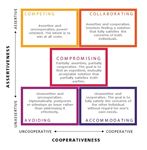
John Hackston - Head of R&D at OPP
Leaders are quick, decisive, and know what they want; they aren’t afraid to make unpopular decisions and they can be fiercely competitive. This might be a somewhat old-fashioned view of leadership, but new research by OPP suggests there is more than a grain of truth here.
Top five blog articles of 2014
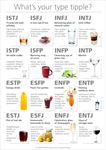
OPP Ltd
Visits to our Personality Matters blog were at an all-time high in 2014, and we covered a wide range of topics in our weekly posts. Over the last 12 months we've talked about the best MBTI-based books and the various resources available for L&D teams. We’ve promoted Movember, and we’ve commented on the Paul Flowers furore. We've also continued to thrive as thought leaders in a diverse range of workplace psychology issues, from recruitment and assessment centres to polarity management. But what are the top five posts that readers have returned to again and again?
Ten more books about MBTI and type that you can't afford to be without!
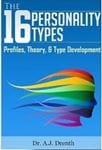
OPP
In the second of our blog posts looking at 20 invaluable books about MBTI® and type, we review another ten titles that have impressed MBTI practitioners or been a key support in their work with the MBTI assessment. As with the first batch, the books featured here are listed in no particular order, and comments are from individual reviewers who responded to our request for reviews on the Linked In group OPP Qualified Professionals.
Celebrating the TKI’s 40th year anniversary

Ralph Kilmann - co-author of the Thomas-Kilmann Instrument
In Act 1 of my blog posts marking 40 years of the TKI, I described the circumstances surrounding the development of the instrument. In this continuation of the story I’ll explain how ongoing research and validation enabled it to become the world’s best-selling conflict management tool.
Why’d you do THAT?! Interpersonal needs and motivations

Pamela Valencia, Solutions Consultant at CPP, Inc
Understanding personality type helps us see how our minds are wired - how we like to get energised, take in information, make decisions, and orient ourselves to the outer world. Understanding interpersonal needs gives us insight into another aspect of our personality - what motivates our behaviour in regard to how much interaction we want with others.
Celebrating the TKI’s 40th year anniversary
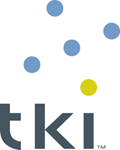
Ralph H. Kilmann - co-author of the Thomas-Kilmann Instrument
"While I don’t recall if there was a single moment, an epiphany of sorts, at some point Ken and I must’ve said out loud: 'Let’s develop a new instrument to measure the five conflict-handling modes'..." Ralph Kilmann recalls the origins of the Thomas-Kilmann Conflict Mode Instrument in the first of two blog posts celebrating 40 years of the TKI.
Celebrate with 25 free resources for practitioners

OPP
Few things in life are free – but OPP has some really cool free resources to support you in your work! To help celebrate our 25 years in the business, we’ve taken a trawl through the various goodies available for zero outlay on our website. They range from white papers and feedback materials to fun quick guides and infographics – many of which can also be found on our practitioner downloads page.
Type and culture: two pieces of the same puzzle
Joanne Weston, Associate Certified Coach, International Coach Federation (ICF)
Our guest blogger Joanne Weston, ICF Associate Certified Coach and MBTI® practitioner, shares some practical tips for using the MBTI tool cross-culturally.
Leadership - 10 New Year's resolutions
OPP
Having blogged on the theme of leadership through the last quarter of 2012, OPP presents 10 top tips for keeping leaders in top condition during 2013 and beyond.
The battle of leadership
opp
Guest blogger Kaveh Mir of Deep Values Coaching assesses the impact of conflict on organisations when senior leaders are at war. Workplace conflict, no matter how small, tends to divide individuals into distinct factions, much like nations or alliances in a war – especially when these factions are allied under one leader. Many of the differences that arise in the workplace can be seen as ‘turf wars’: that is, employees will come into conflict over responsibility, recognition, credit or blame. One party perceives that another party is infringing on their turf; the first party fires verbal shots, and war is engaged. Those outside the front lines choose sides, opting to stand behind one party or the other.
The role of mediation in resolving conflicts
opp
Our guest blogger Julian Evans, mediation expert at law firm Morgan Cole, considers the general context of mediation in the UK, why it is increasingly being considered a good option for resolving conflict, and how psychological interventions such as the TKI can help in the process.
The marriage between conflict and change
Ralph Kilmann
Conflict is essential for powering change in an organisation. It is a catalyst for the evolution - revolution, even - that drives success.
Conflict management and political behaviour across the globe
Ralph Kilmann
In a world of conflict, is it too ambitious to imagine that the TKI model can shed light on areas of political confrontation?
Resolving the frozen misperceptions between two warring parties
Ralph Kilmann
Defusing high-intensity conflicts and raising empathy between parties.
Bullying behaviour and conflict management
Ralph Kilmann
How to make bad behaviour unacceptable in the workplace.
Does an instrument assess 'looking good' or actual behaviour?
Ralph Kilmann
Assessment tools must address potential social desirability response bias if they are to be considered credible.
Assumptional analysis and conflict modes
Ralph Kilmann
By seeing your assumptions face-to-face, you have the chance to revise them, which will surely inspire you to change your beliefs or modify your behaviour.
Problem management and conflict modes
Ralph Kilmann
The particular conflict modes used during each step of problem management have a great bearing on organisational success.
Correlating the MBTI and TKI assessments
Ralph Kilmann
Correlating the MBTI with the TKI assessment shows that certain personality traits predispose people to certain conflict modes.
Top six tips for managing conflict in the workplace
opp
There are ways to deal with conflict that can not only diffuse the situation, but turn a negative into a positive.
The OPPrentice: no cheese please, we're British
Kajal Ruparell
This week's episode gave us multiple examples of how contestants deal with conflict differently.
The OPPrentice: the only way is tan
Kajal Ruparell
Was it Azhar's apparent preference for Introversion that caused him to be overlooked? And will Alan Sugar lose out by not heeding his contribution?
The OPPrentice: Survival of the fittest?
kajalruparell
In order to survive the tasks, candidates need to cooperate with each other, take responsibility for their failings and effectively manage the conflict that inevitably arises.
Should I stay or should I go? David Cameron’s negotiation style with the EU
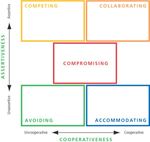
Rob Bailey
David Cameron’s veto at the recent EU summit has given us all something to talk about. At OPP, the whole episode has been a reminder of the variety of ways that a person might approach conflict and negotiation.
Occupy London - a positive form of conflict?
heathercoop
We all have preferred methods for dealing with conflict, but we may not be using the approach that is most appropriate for a particular situation.
When being at the top isn't a riotous affair
opp
Good leadership means being able to navigate through both good times and bad. So where are the political leaders as the riots unfold in London and elsewhere?
The OPPrentice - Episode 11
opp
So here we are in the penultimate week of the series, with the remaining five candidates fighting it out to be part of the final four…
The OPPrentice - Episode 10
opp
Melody is nodded out of the boardroom.
Conflict in teams: what are we all so afraid of?
betsykendall
Conflict is uncomfortable and seems counterproductive... But without conflict, do we risk brushing issues and opportunities under the carpet?
"You can't shake hands with a clenched fist"
TeriSmith
The average employee spends 2.1 hours a week dealing with conflict. So what's the best way to make something that is often seen as a potential derailer into something that's actually a good thing?
Categories
- B Corp
- Care
- Careers
- Coaching
- Communication
- Conflict management
- CPI260
- Current affairs
- Decision-making
- Emotional intelligence
- FIRO
- Infographics
- Leadership
- Leadership development
- Managing change
- Managing stress
- MBTI
- Onboarding
- Personal development
- Podcasts
- Recruitment
- Social media
- Sport
- Strong
- Team development
- TKI
- Top tips
- Training